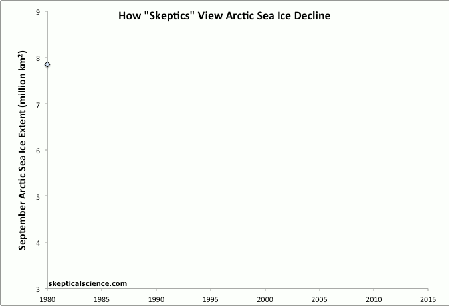By legalizing 11 million unlawful immigrants, the amnesty would likely have negative long-term impacts to this nation financially and politically.
Let's dig in to her argument, which is riddled with numerous fallacies. Her first argument for this conclusion involves citing at a Heritage Foundation report that claims that Amnesty would cost the US $6.3 trillion because all these immigrants would suck up $9.4 trillion in benefits (welfare, food stamps, etc.) and only pay in about $3.1 trillion in taxes. This is, right off the bat, a nice example of an
Appeal to Authority. I don't know enough about how these numbers are calculated, but the assumption that every single immigrant will use more in benefits than they pay in taxes doesn't seem very reasonable. Furthermore, the
Heritage Foundation is a right-wing think-tank that has a history of coming up with conclusions first, and then seeking data to support those conclusions. In any case, this report is then immediately contrasted with a reprot from the Cato Institute that comes to the opposite conclusion, namely that amnesty will be a net benefit to the economy. Zh-Ye dismisses this report, arguing:
It is true that overall GDP may appear to be bigger if currently under-the-table business activities are included, but it is not a healthy and sustainable growth, as it is associated with enormous government expenses. The purpose of a pro-growth theory is to promote an immigration policy which would make fiscal costs public and keep the corporate profits private.
As one can see, Zh-Ye simply asserts that this is true, without providing any evidence that this is the case. Furthermore, I am unclear why a pro-growth policy would make the costs public and the benefits private, nor how this relates to the broader criticism of the Cato Institute. This would appear to be a nice example of a
Non Sequitur.
Zh-Ye's next argument for her thesis concerns an imagined future conflict between all the newly legalized immigrants on welfare and the newly retired Baby Boomers who are collecting social security.
As the Baby Boomers retire, Social Security and medical costs will go up. At the same time, an exploding population of green-card-carrying immigrants would become eligible for welfare benefits in 2023. Hence, there is likely going to be major conflict between these two populations. Both retirement and welfare systems may start to default if politicians stretch younger taxpayers' ability to pay and support both of these enormous programs at the same time.
This passage clearly demonstrates Zh-Ye ignorance about these matters. In particular, she seems to be unaware that Social Security is separate from other Federal Budget items and does not contribute to the deficit. Furthermore, Social Security is self-funded, and is
completely solvent through 2033. Thus, this predicted conflict between newly legalized immigrant welfare recipients and Social Security recipients is entirely a fiction invented by Zh-Ye that has no basis in reality.
Zh-Ye's final argument is the strangest and most incoherent of the three, and is summarized in the following paragraph:
Many immigrants have deep scars from socialism. They know how their home countries turned into one-party communist countries many years ago. They also learned, as a part of Asian history, how elite people were humiliated and tortured, little by little, begging for their rights, dignity, and properties. Unfortunately, America is not immune from turning into a socialist country if it imports large numbers of low-income immigrants to change its political landscape.
If I understand what she is saying, the argument can be summarized as follows:
- Many immigrants come to the US fleeing the horrors (as they have experienced it) of Socialism.
- In the US they will try to recreate the very thing they are fleeing from.
- Thus, increasing immigration will lead to Socialism
Ignoring for now the question of why Socialism would be a bad thing, it is clear that this argument is guilty of an Inconsistency. Why would people fleeing Socialism establish it in the place they are fleeing to? There is an additional inconsistency in that the article is ostensibly about Amnesty, meaning the immigrants in question are the ones who are already here illegally, but now Zh-Ye is talking about new immigrants who are fleeing Socialism with the apparent goal of establishing it in the US. The entire argument is self-contradictory, and really doesn't make any sense. In addition, it also appears to commit a Slippery Slope, arguing that the legalization of people currently in the US illegally will somehow (this is never explained) lead inevitably to Socialism.
Zh-Ye concludes, writing:
If this amnesty bill passes Congress and becomes the law, the U.S. may be at risk to lose a portion of its wealthy and upper-middle-class people, due to sharp tax increases and an unbalanced social structure. These people will take a good amount of talent, wealth, and jobs with them.
Again, if one thinks a bit deeply about this it makes no sense. Just where would these wealthy, upper-middle class Socialism-hating people go? To Europe? That is even more socialist than the US? China? Same problem with less freedom. The Middle East? Russia? Africa? An evil villain lair in Antartica? Again, the entire thesis of the piece is non-sensical, and once one thinks just a bit critically about the argument the entire thing just falls apart. This is a clear example of how a failure of critical thinking and analysis can lead someone to develop seriously wrong and incoherent opinions on an issue.

















